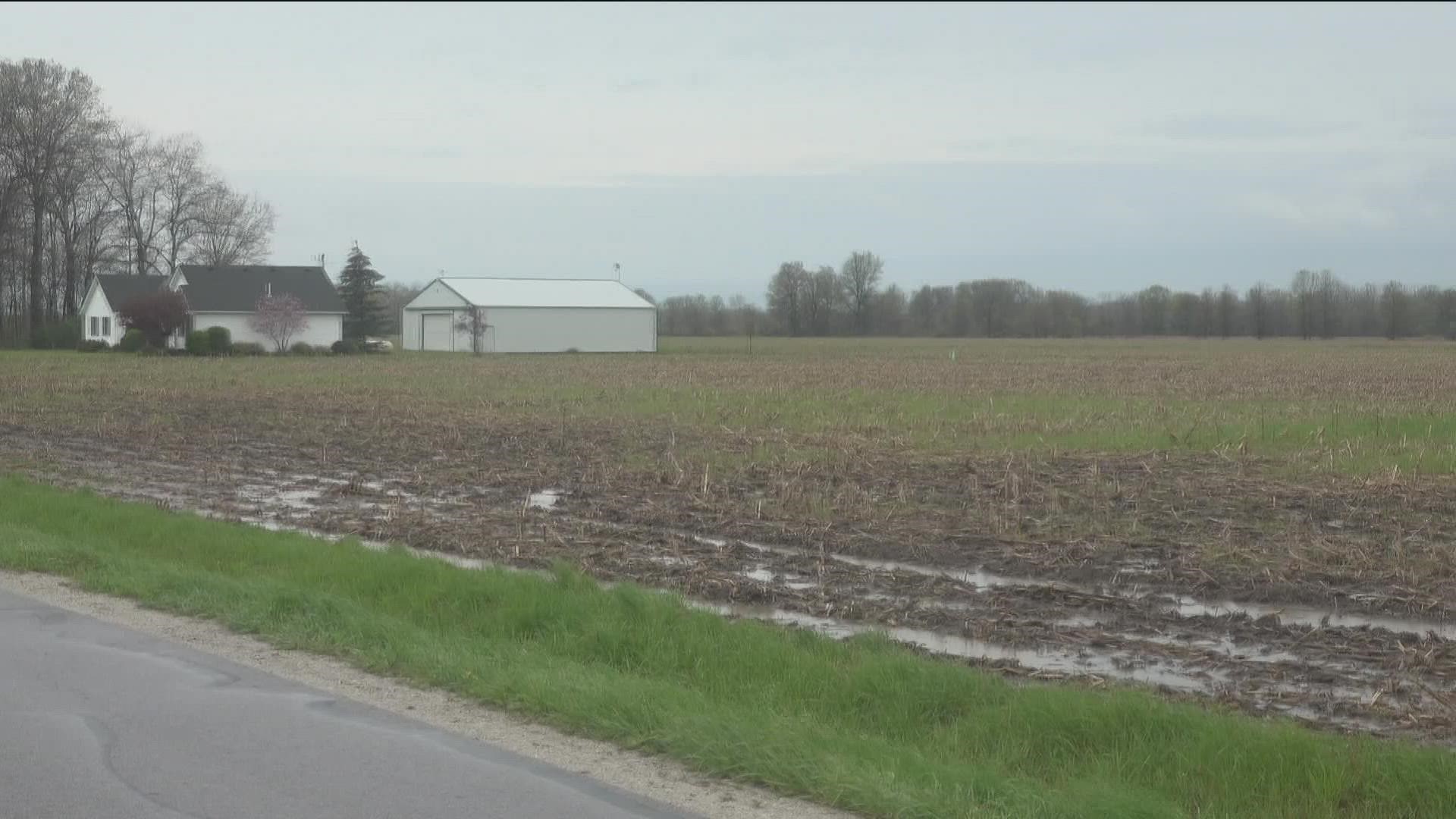OAK HARBOR, Ohio — So far it has been an especially rainy and cold May, with WTOL 11's weather team reporting a full inch more rainfall than normal so far this month.
That inclement weather has negatively affected local farmers' planting season.
Mike Libben is a wheat, corn and soybean farmer in Oak Harbor. He says early May is normally prime time for planting those crops, but with fields flooded from this week's heavy rainfall, farmers are left waiting until things dry up.
"Certainly when it's this wet, we can't do anything. You can't do yard work you can't do fieldwork either," Libben said. "So it will be another week or so of dry weather before we can hopefully start doing something."
Cindy Bench of Bench Farms in Curtice, Ohio says her planting season was affected as well by this unseasonable weather, causing her to have very little business the entire month of April. She says it's not just the rainfall that's been an issue.
"If you go stick your finger in the ground right now it's about 48-60 degrees. It's good for cabbage, potatoes and radishes," Bench said. "Not good for tomatoes and peppers, and this time of year people are used to planting those things."
But Bench says the weather this year isn't just an anomaly. She says it's most likely going to be the new normal going forward.
"We're living in a time I call climate disruption and we didn't really have any winter until February, so it's like our seasons are getting pushed back," Bench said. "And here it is, May. June is only three weeks away and it's acting like April weather."
And Bench isn't alone in this thinking.
Scientists at Harvard's Belfer Center for Science and International Affairs say climate disruption is one of the immediate side effects of climate change, causing more erratic weather patterns and shifting seasons.
Those reports indicate these seasonal shifts will only become more common as the years go on.
While Bench admits it will be a challenge for farmers going forward, she remains optimistic that people can adapt.
"We can't change what it is," Bench said. "Learn to acclimate, have patience, because it will dry up, it will warm up and we'll do things in a timely fashion."

